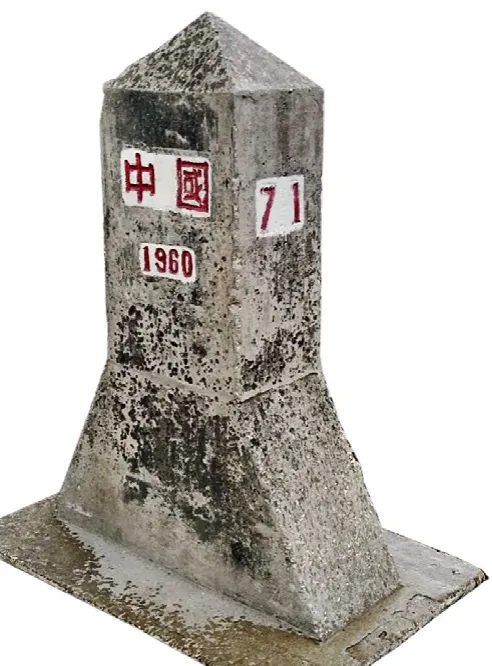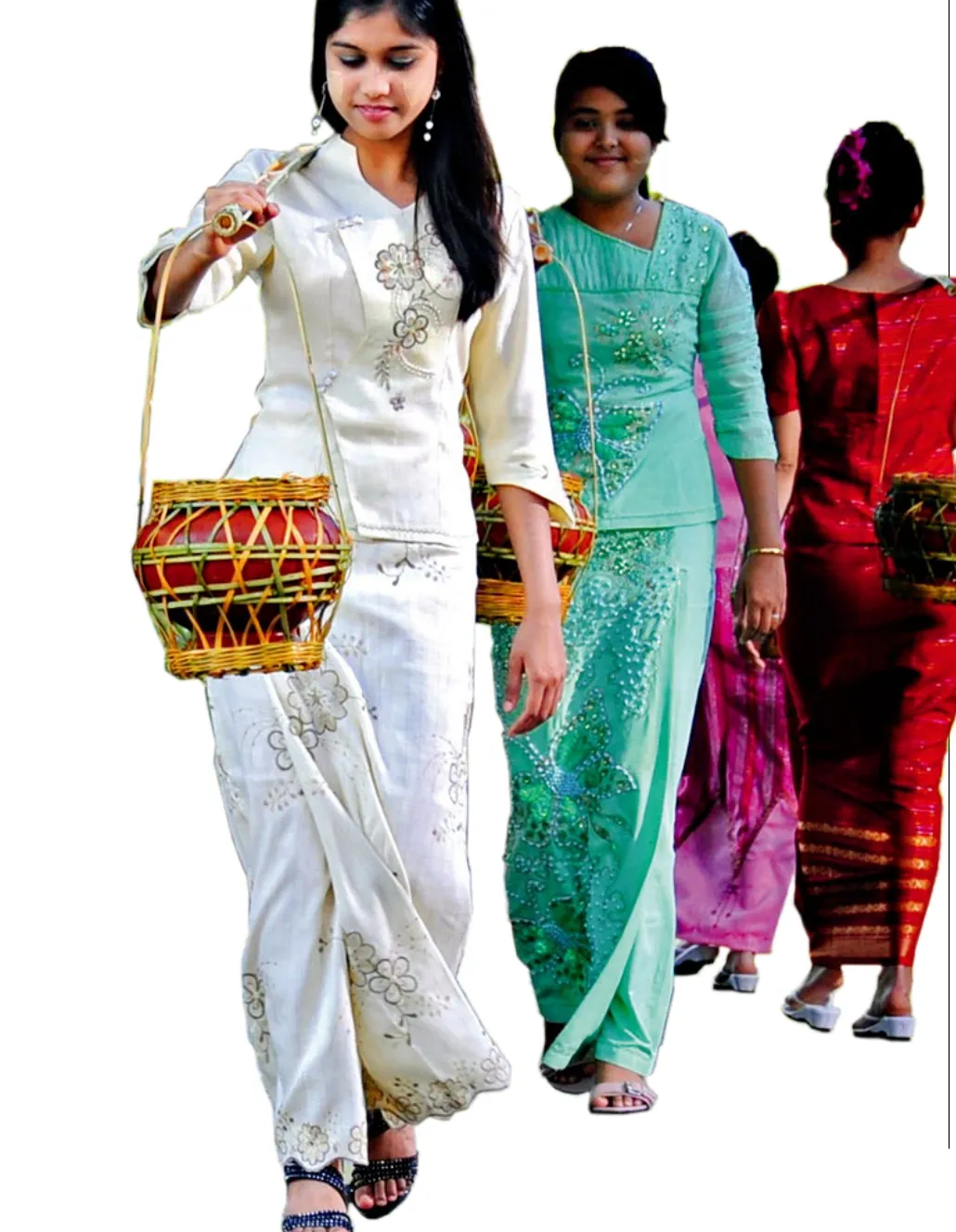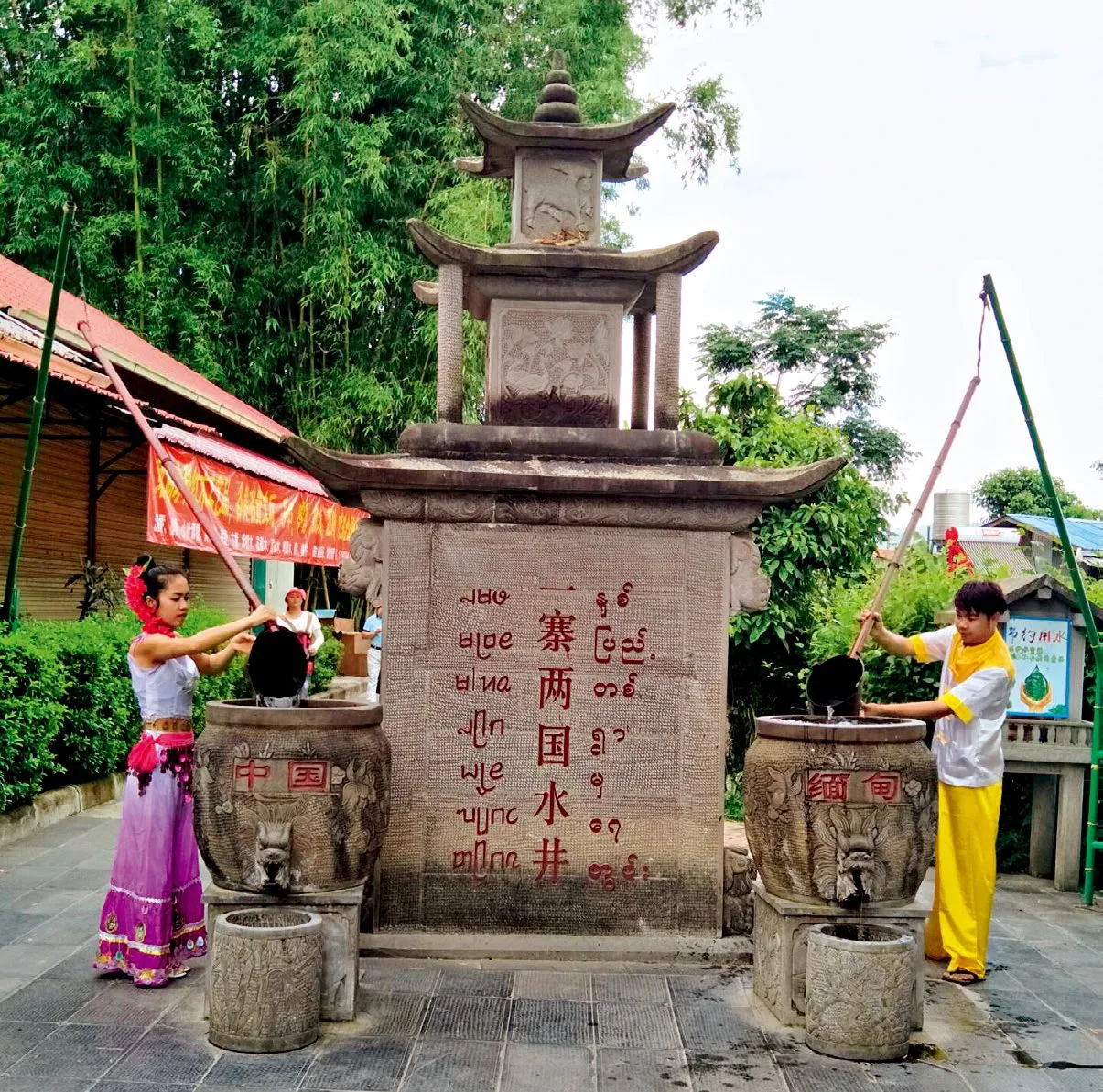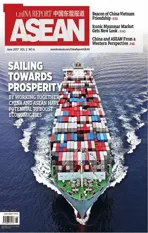Just Across the Border
2017-08-07ByZhaoLinHanFeng
By Zhao Lin, Han Feng
Just Across the Border
By Zhao Lin, Han Feng
A Dai ethnic village straddles China and Myanmar physically as well as culturally

A golden pagoda glitters in the sunlight.

Marker 71 indicates the exact site of the China-Myanmar border.
Just 11 kilometers from urban Ruili in southwestern China’s Yunnan Province lies a distinctive and small village that straddles the border area between two countries. With the China-Myanmar Boundary Marker 71 as the village’s centerpiece, the national borderline meanders through the village and divides it into two parts. The side that falls within China’s border is called Yinjing. Here, fi elds that cross both Chinese and Myanmar territory meet as roosters crow and dogs bark, seeming to communicate with their peers just across the border. People living on the frontier trade and intermarry as their cultures merge and mingle.
The boundary within the village is graced with bamboo sheds, village roads, water ditches and ridges of earth. Therefore, it’s fairly commonto see creeping Chinese melon vines spread to the Myanmar side of the bamboo fences on which they grow. Myanmar hens often wander into a Chinese courtyard to lay eggs. Local villagers may travel across the boundary for “international trade” or various other purposes dozens of times per month. On both the Chinese and Myanmar sides, they coexist in harmony, speaking the same language, sharing the same folk customs, walking the same paths, shopping at the same markets and drinking water from the same well.

The daily lives of the citizens of two countries are intertwined.

Both Chinese and Myanmar residents of the village draw water from the same well.
Living in such a place, where trapezes swing between two countries, golden pagodas tower to bless both peoples and sprawling tree canopies provide shade for citizens of two countries, local villagers ignore the presence of the national boundary, but simply see one another as close neighbors. Each morning, Myanmar children ride bicycles lightheartedly across the border to the Yinjing Primary School on the Chinese side of the village, and after classes, they return home for dinner — all of which account for a normal daily routine.
Apart from its transnational features, the village itself presents picturesque scenery, characterized by ethnic Dai bamboo houses, glittering Buddhist temples and pagodas and placid lakes across which Myanmar boats skim slowly and gracefully.
Preferential taxation policies:
Ruili City has implemented preferential taxation policies designed to accelerate the construction of the Ruili National Key Development and Opening-up Pilot Zone formulated by the provincial government of Yunnan. According to such policies, enterprises established in Ruili after Jan. 1, 2013, excluding those engaged in industries that China prohibits or restricts, are exempt from paying their local share (40 percent) of corporate income tax for their first five years of operation and are allowed a 50 percent reduction for their second five years of operation. In the meantime, such enterprises can also enjoy national preferential taxation policies for the development of western regions.
